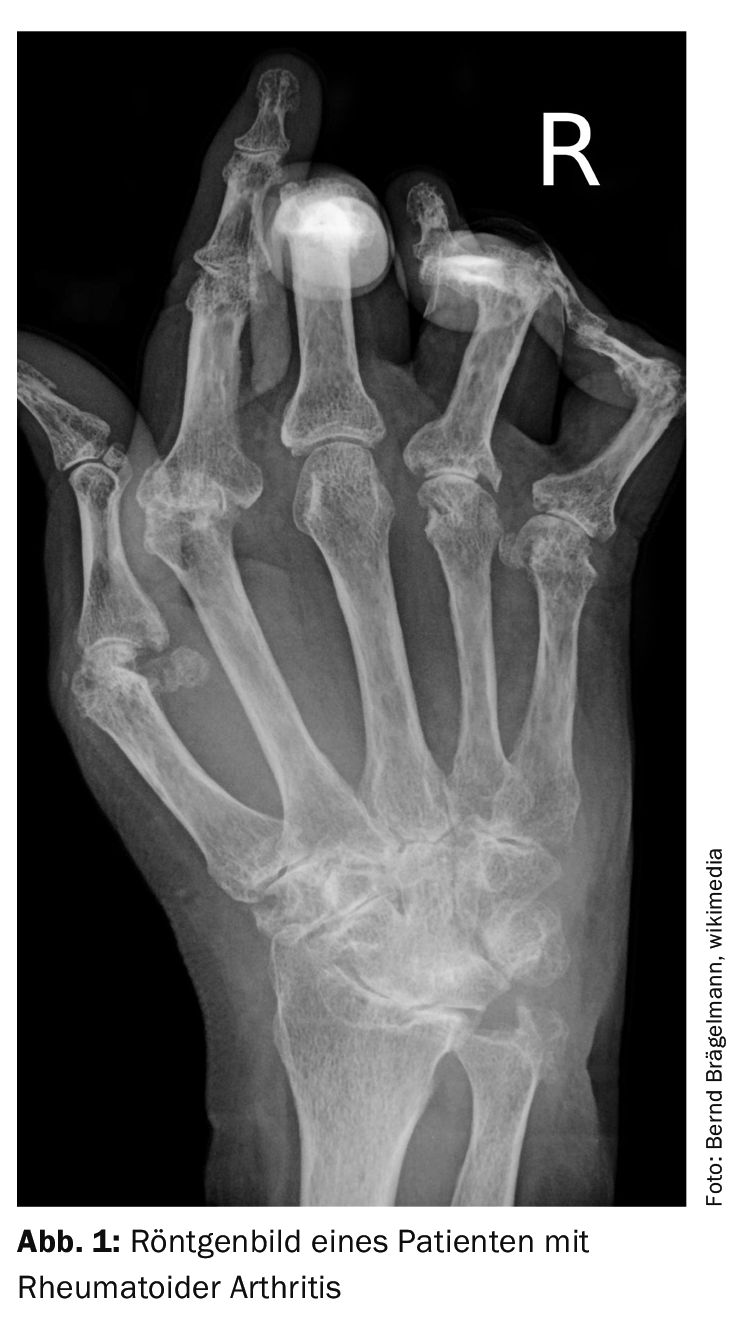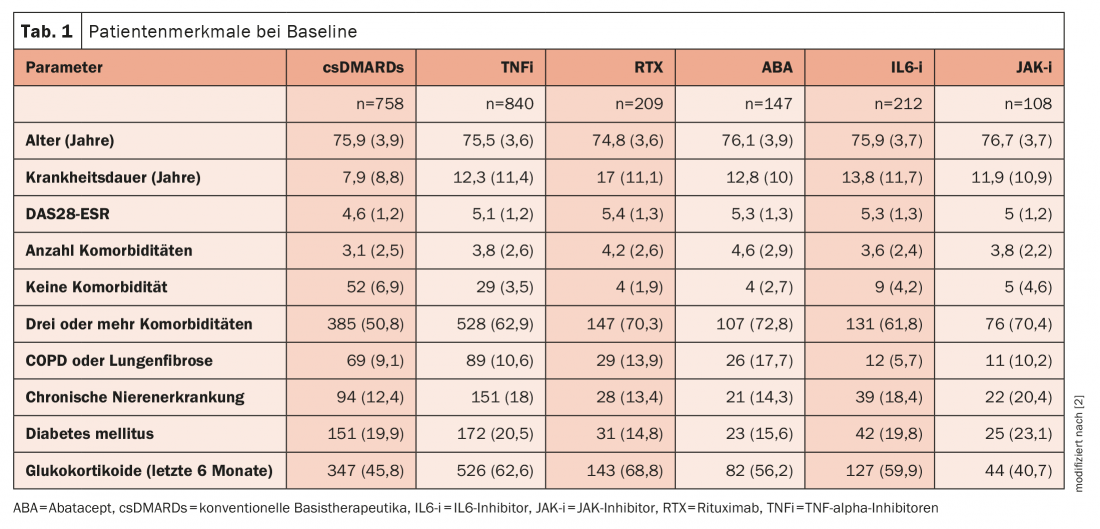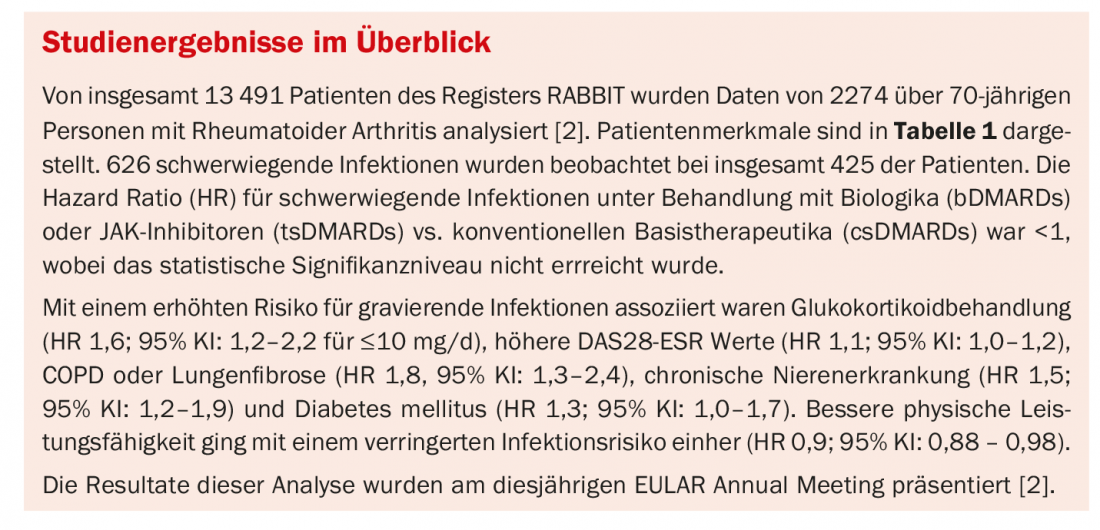In clinical practice, older rheumatoid arthritis patients tend to receive treatment with biologics (bDMARDs) less frequently than younger patients, although the use of conventional basic therapeutics is often not appropriate due to comorbidities or insufficient efficacy. In a recent analysis of registry data, biologics and JAK inhibitors did not demonstrate an increased risk of serious infections in the patient population over 70 years of age.
The prevalence of rheumatic diseases is higher in the elderly population compared to younger age groups. Changes in pharmacokinetics and dynamics, as well as increased occurrence of comorbidities, pose challenges for the choice of appropriate treatment, and benefit-risk assessment is often a balancing act [1]. Older individuals with rheumatoid arthritis generally have an increased risk of infection, which is important to consider when selecting therapy.
RABBIT registry data
The biologics registry RABBIT (“Rheumatoid Arthritis – Observation of Biologics Therapy”) is a prospective German cohort study in which a large number of patients are observed over a long period of time to find out more about the benefit-risk profile of antirheumatic pharmacotherapies [2,3]. Patients with rheumatoid arthritis who start a new disease-modifying antirheumatic therapy (DMARD) after at least one failed therapy attempt with a conventional basic drug (csDMARD) can be included in the study,

Biologics and JAK-i: increased risk of serious infections?
In an analysis presented at this year’s EULAR Annual Meeting based on the RABBIT registry with data from 2274 rheumatoid arthritis patients over 70 years of age, the risk of different classes of disease-modifying drugs was compared. The results indicate that treatment with bDMARDs and tsDMARDs is not associated with an increased risk of serious infections in the over-70 age group (Box) [2]. After adjustment of the data, the risk of serious infections was found to be lower with treatment with biologics (bDMARDs) and JAK inhibitors (tsDMARDs) compared with conventional basic therapeutics (csDMARDs), although the statistical significance level was not reached. An increased risk of infection has been noted for glucocorticoid treatment, increased disease activity, and in the presence of another condition such as chronic lung disease, renal insufficiency, or diabetes. In addition, the researchers found that better physical performance was associated with a reduced risk of infection.
Congress: EULAR Annual Meeting 2021
Literature:
- Drug Therapy 2020; 38: 125-136.
- Strangfeld A, et al. Elderly patients are not at increased risk of serious infections when receiving bDMARDs or JAK inhibitors compared to csDMARD treatment. Presented at EULAR 2021; abstract OP0116, Annals of the Rheumatic Diseases 2021 (80): Suppl 1, https://ard.bmj.com/content/80/Suppl_1/64.2
- RABBIT – Rheumatoid arthritis: monitoring biologics therapy, https://biologika-register.de, (last accessed June 23, 2021).
InFo PAIN & GERIATRY 2021; 3(1): 40-41 (published 7/21, ahead of print).













